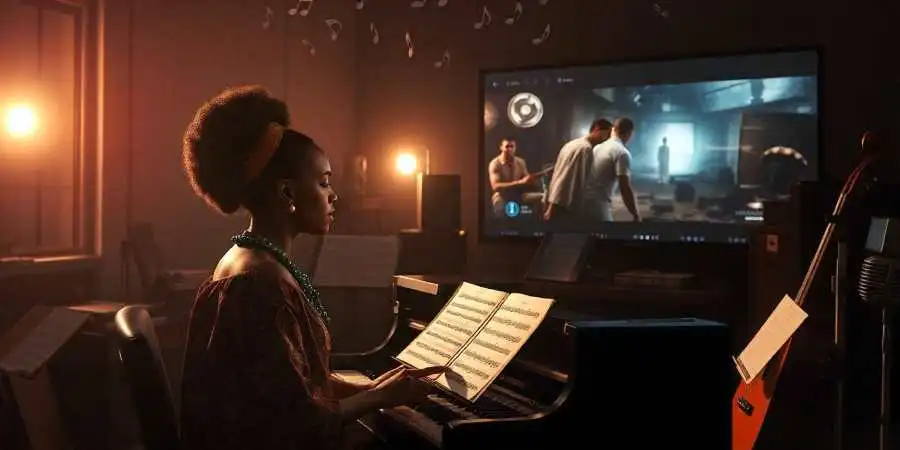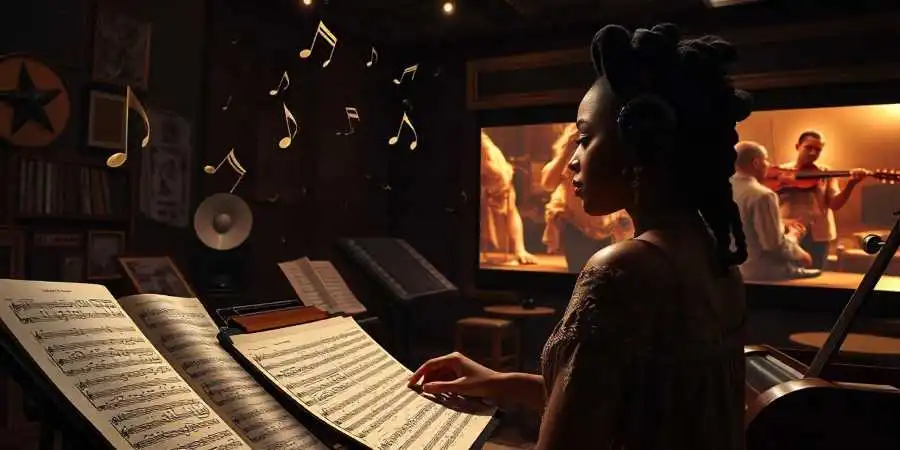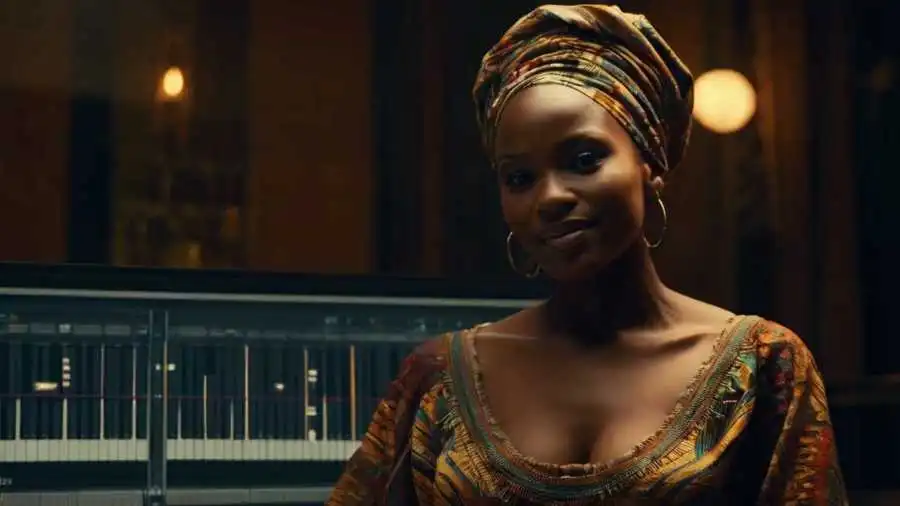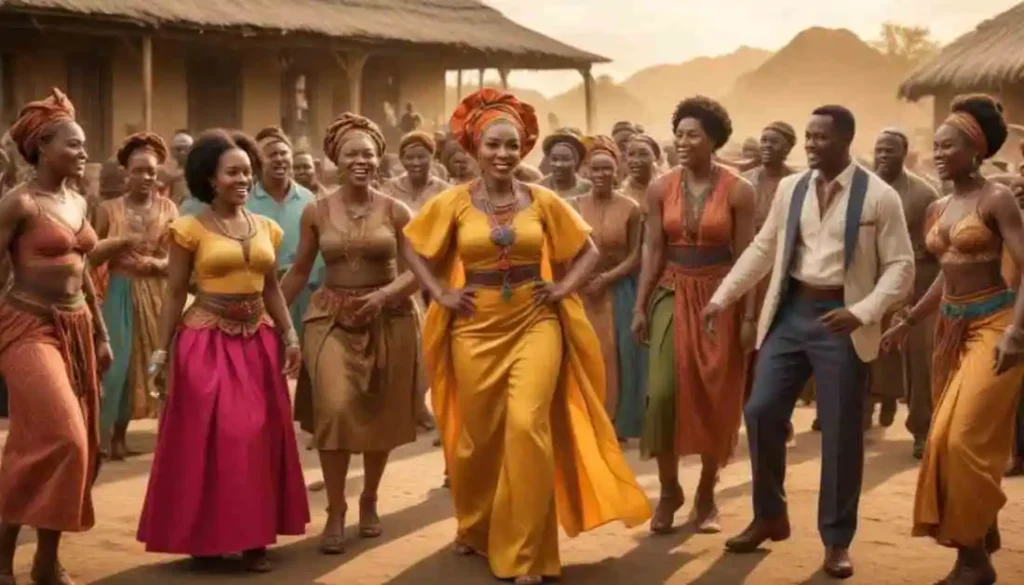
Imagine watching a movie without any background music.
You stare at the quiet screen as a logo fades up announcing the production entity.
Opening credits roll and images flicker. Transitions are radio silent.
There is no soundtrack or riveting beats to herald the opening sequence.
Characters appear, revealing bits and pieces of the narrative, and the story trudges on.
But there is no music—just dialogue and natural sound. How will it look or feel? Exciting? Tedious?
Let us step back for a moment.
Does your film need music to tell a compelling story? Do you need a soundtrack to succeed?
The answer may be in your reaction to that snippet. If you consider it dull, that may be the feedback.
Perhaps not a definitive response because not using music could also be a creative choice.
Nevertheless, in this edition, we will look at the benefits of having good music or soundtrack in your film, and why you need it to succeed.
Shakespeare wrote: “If music is the food of love, play on.”

What is a sound score?
Let us start by asking what a sound score is.
A sound score is the musical soundtrack of a film, crafted to complement the narrative, evoke emotions, and enhance the overall storytelling experience.
Be it a sweeping orchestral piece or a subtle melody, a well-composed score can transform a scene, making it more intense, emotional, or humorous.
Sound scores are not just background noise. They are an integral part of the film.
Music in the Early Days of Film
Music has been a part of films since the very beginning. Even in the silent film era, music played a crucial role.
Back then, films were often accompanied by live music, with pianists or orchestras performing in the theater to match the on-screen action. These early soundtracks were essential for conveying emotions and pacing, as there were no spoken words to guide the audience.
The use of music in silent films laid the groundwork for the rich, diverse sound scores we experience in movies today.
The Benefits of Using Music in Film

It does more than fill the silence—it sets the tone, builds tension, and can even become a character in its own right. A powerful score can elevate a film, making scenes memorable and emotionally impactful.
Music guides feelings and reactions, ensuring that critical moments resonate with viewers long after they have left the theater.
Below are some benefits of music in your film.
Evoke emotions: A well-chosen score can convey a wide range of emotions, from joy and excitement to sadness and suspense.
Enhance the narrative: Music can complement the visual storytelling, adding depth and context to the scenes.
Create atmosphere: Music can set the mood and tone of a film, whether it is a romantic comedy or a horror thriller.
Memorable moments: Iconic film scores can create moments that resonate with audiences long after the film.
But before you dash off downloading your favorite song and laying it under your movie, be sure to apply for the license or get copyright clearance. Otherwise, you will be playing with a lawsuit.
How Indie Filmmakers Can Source Music

For indie filmmakers, securing the right music for your film can be challenging. However, it is not impossible.
Here are a few ideas:
Contracting Original Sound Score: In the early days of Nollywood, this was a common practice. It still is. Many producers contract musicians to score their films.
Music licensing: Obtain licenses for specific songs or compositions.
Royalty-Free Music Libraries: Platforms like Artlist, Epidemic Sound, and Premium Beat offer a wide range of high-quality tracks that can be licensed for a one-time fee, making them budget-friendly options for indie projects.
Collaboration with Local Musicians: Partnering with local bands or composers can give you unique, original soundtracks that add a personal touch to your film. This collaboration can also lead to mutually beneficial exposure.
Crowdsourcing: Consider reaching communities or forums where aspiring composers share their work. You might find a talented musician eager to collaborate on your project.
Copyright-free music: Utilize royalty-free music platforms to find affordable options.
Beyond enhancing the film itself, music can also provide commercial opportunities.
Commercial Opportunities From Film Music

Music in film is not only about enhancing the viewing experience—it can also be a revenue stream.
A well-crafted film score can also provide commercial opportunities.
Successful soundtracks often become popular on their own, leading to album sales, streaming royalties, and licensing deals.
Moreover, music can increase the visibility of a film, helping it reach new audiences through its soundtrack alone.
Conclusion
Thank you for reading. We would love to hear your thoughts on the role of music in film.
Have you ever struggled with finding the right music for your project? Share your experiences and insights in the comments below.
Please do not forget to pass this newsletter along to your friends and colleagues who might find it helpful.





